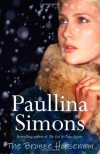BookTube-A-Thon: Stolen

WARNING: SPOILERS
Brief Background: Gemma is a sixteen year old British teen, kidnapped by Ty, a young adult who has stalked her since her childhood. Taken to a particularly uninhabited area of Australia she is faced with the possibility of no escape and living forever with her captor. This book, written as a letter from Gemma to Ty, explains the complexity of emotion dealing with such horrible circumstances.
What I Liked
1. The second person narrative - written as a letter from Gemma to Ty, this book feels so raw in it's form. The writing style is perhaps a little too complex for a girl of sixteen, but you can almost forget that because it is so beautifully constructed. The prose is reflective, emotional and very touching in a very weird way. The feelings that Gemma has for Ty, despite the clearly disturbing nature, are spilled out onto the page in such an eloquent way, that coupled with the use of 'you' and 'I' feels like she really pours her heart into this letter. The letter format also meant this had an air of 'stream-of-consciousness' about it, which surprisingly, didn't bug me. The lack of chapters actually assisted the flow of the novel, and there were sufficient page breaks to avoid the prose becoming convoluted.
2. The emotional manipulation - Lucy Christopher very cleverly uses the second person narrative to sway the reader into feeling something for Ty. He's clearly a very disturbed individual, and yet, it is easy to fall into the trap of sympathising with him as the book goes on, much in the same way that Gemma's feelings toward him begin to develop. Although personally I never reached the stage where I believed that Ty and Gemma should be together, I nonetheless had the feeling that Ty didn't deserve the ending that he got - until I realised that this entire book is built on manipulating the reader's thoughts much in the same way that Gemma's are. The fact that Ty lead Gemma to believe certain things about her friends and her family was mindboggling because, right until the end of the book, I (as the reader) also took them to be fact. But then, thinking back, you realise that Ty could have lied about any of that, and (as this book is written from Gemma's perspective) there is no way of testing the veracity of those claims. It is very cleverly written in this regard.
3. The setting - although there were some things that I didn't like about the setting (see below), the fact that it was in Australia was beautiful. The use of the red, raw desert mirrored the desolation and hopelessness that Gemma feels. It mirrors the isolating nature of being captured and taken away from everything that she knows. The spiritual context and the use of indigenous culture, as well as the natural elements of sun, sand, animals and earth were very beautifully encapsulated by the prose. It was a familiar setting for me, and I enjoyed that.
What I didn't like
1. The setting - although I loved where the book was set, I didn't like the common misconceptions of Australia thrust into it. Although obviously the isolation and existence of poisonous creatures was crucial to the plot-line, I feel like this is so over represented in everyone's expectations of Australia. Yes, a lot of this country is desert and virtually uninhabitable, and yes, we have poisonous snakes and spiders. But this land is so much more than that, and although I think the indigenous culture was well used to represent the sacredness of middle Australia, the novel did feed into certain preconceptions that so many foreigners have about Down Under. Additionally, there were some things which the author perhaps didn't research adequately enough which irked me. For example, we don't have a High Court in Perth (or anywhere else in Australia other than Canberra), so Gemma's trial would have been in the Supreme Court of Western Australia.
2. The implausibility of the circumstances under which Gemma was stolen - If we think about the strictness of airport security, particularly in Australia, the possibility of getting a young, virtually comatose girl in and out of international border patrol is virtually nil. In Australia, we have extremely strict border control and customs owing to the fact that, as an island, the possibility of keeping dangerous diseases and pests out of our country is much better than countries which aren't. We additionally have very, very strict migration regulations (a bit of a sore point at times but nonetheless true). Even as a British citizen, Gemma would have been subject to questioning at the border as a foreigner. If she was drugged, there would have been very little possibility of her being able to answer these and slip past. Although I overlooked this point as it was crucial to the plot, its implausibility did irk me right until the end of the novel.
Owing to these last two points, I think I had to knock a very strong contender for four stars down to three and a half. Without the implausibility part, it could definitely be higher rated purely due to the beautiful and addictive prose. I found this very hard to put down, which for someone who isn't usually a fan of young adult or adult contemporary pieces, was a rarity. I would recommend this book, but perhaps make sure for the next couple of days you don't venture out of the house alone, because it does tend to creep you out a bit.
 3
3








